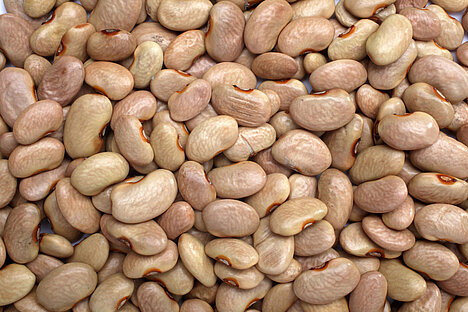Phytohaemagglutinin

What is phytohaemagglutinin?
Phytohaemagglutinin is a so-called lectin, which means that it binds to certain sugar structures on the surface of cells. This allows it to clump together or damage the cells. Phytohaemagglutinin is found in many plants, especially in legumes such as beans, peas and lentils. It serves as protection against predators or pathogens that want to attack the plant.
How does phytohaemagglutinin affect dogs?
If dogs eat raw or undercooked legumes, they can be poisoned by phytohaemagglutinin. Symptoms include vomiting, diarrhea, abdominal pain, fever, weakness and loss of appetite. In severe cases, anemia, kidney failure or shock may occur. The poisoning can occur within a few hours to several days.
How can you avoid phytohaemagglutinin?
The best way to avoid phytohaemagglutinin poisoning is not to give your dog raw or undercooked legumes. If you want to offer legumes as part of his diet, you should always cook or soak them thoroughly. This destroys most of the phytohaemagglutinin and makes the legumes more digestible. You should also make sure that your dog does not have access to waste or compost that could contain legumes.
Are there also benefits of phytohaemagglutinin?
Phytohaemagglutinin is not only harmful, but also has some positive properties. For example, it can stimulate the immune system, promote intestinal health or regulate blood sugar levels. However, these effects can only be expected in small quantities and when legumes are cooked or soaked. Furthermore, they are not absolutely necessary or desirable for dogs. Therefore, you should always be careful when giving your dog legumes.
Phytohaemagglutinin is a protein found in many plants that can be toxic to dogs. It can lead to vomiting, diarrhea and other severe symptoms. To avoid poisoning, you should not give your dog raw or undercooked legumes. If you want to offer him cooked or soaked legumes as part of his diet, you should limit the amount and monitor his health. Phytohaemagglutinin also has some beneficial effects, but these are not essential or beneficial for dogs.
If you notice any signs of hypersensitivity or poisoning in your dog, you should see your vet immediately. We are not a substitute for a vet, but we try to be as accurate as possible. Every dog reacts differently and we recommend you get a second opinion or consult your vet if in doubt.
Stay healthy and take good care of your four-legged friend!😊